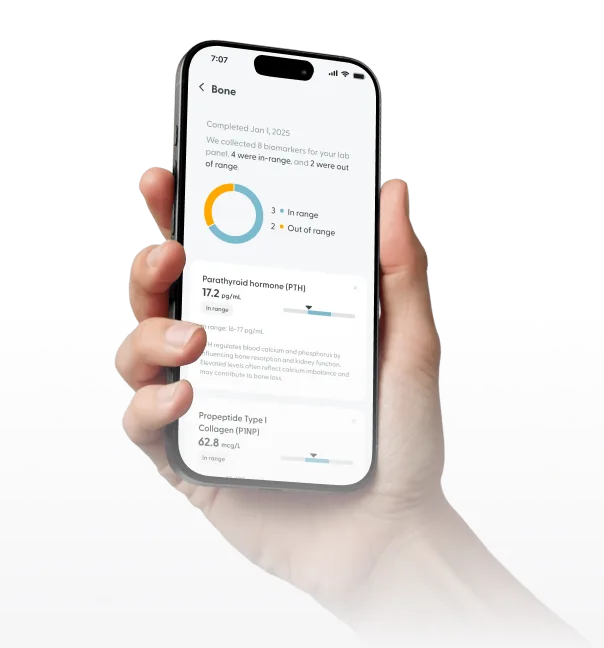Schedule
Book a telehealth appointment from wherever you are. No insurance necessary.
Achieve your weight-loss goals with GLP-1 treatments like Wegovy® and Zepbound®, guided by licensed providers every step of the way.
Personalized care for women, with HRT and lifestyle support to ease menopause symptoms and restore balance.
Simple, supportive mental health care on your terms, including access to prescription medication when appropriate.
Care without the wait—connect 24/7 with licensed providers for same-day prescription refills and common concerns like colds, flu, rashes, and more.
Talk to a doctor anytime, anywhere — 24/7 urgent & primary care with a telehealth visit in under one hour.
Get your medication prescribed online and sent same-day to your local pharmacy for pickup.
Save time, money, and the hassle — no in-person visits or insurance required.


Prescription treatments are tailored to your specific condition, ensuring effective relief.

Urgent evaluation is crucial to identify your condition early and prevent complications.

Accurate testing, if needed, can confirm your diagnosis and guide the best course of treatment

Licensed providers can send prescriptions to your local pharmacy within an hour, day or night.

step 1
Book a telehealth appointment from wherever you are. No insurance necessary.

step 2
Meet with a board-certified doctor or nurse practitioner from your mobile device.

step 3
Get a prescription if needed (save up to 90%), and pick it up at your pharmacy.
Rashes are a common skin condition characterized by red, itchy, and inflamed patches of skin. They can be caused by a variety of factors, including allergies, infections, and skin irritants. While some rashes may go away on their own, others may require medical attention.
A licensed health provider can help determine the underlying cause of your rash and prescribe treatment options such as topical creams, oral medications, or lifestyle changes to manage your symptoms and prevent the rash from recurring.
Get Started Get Started
Total Cholesterol

37 mg/mL
In range

LDL (Low-Density Lipoprotein)

47 mg/mL
In range

Triglycerides

158 mg/mL
Above range

Medications that block the effects of histamine, a chemical released by the immune system that causes itching, swelling, and redness. They’re often used to treat allergic rashes. Examples include diphenhydramine (Benadryl), loratadine (Claritin), and fexofenadine (Allegra).
Anti-inflammatory medications that can help reduce itching and inflammation associated with rashes. Examples include fetamethasone (Diprolene, Diprosone) and Clobetasol (Clobex, Olux).
Medications that suppress the immune system and can be used to treat rashes caused by conditions such as psoriasis and eczema. Examples include cyclosporine (Neoral, Sandimmune) and zathioprine (Imuran).
“Dr. Puopolo is a very knowledgeable doctor with vast experience in different medical fields. I feel I am in good hands.”
Verified Patient

“Great experience!! Never have done online telehealth before but for sure will again :)”
Verified Patient

“Dr. Culpepper was amazing. He explained things to me that I didn’t understand.”
Verified Patient

“Dr. Sehgal was amazing! Super helpful. She was answering my questions before I even asked. Very happy I picked her.”
Verified Patient

"The appointment went great. It was quick and easy, and the doctor was right on top of things!"
Verified Patient

Reviews shown are from verified LifeMD patients across various services. Photos are for illustrative purposes only.
A heat rash, also known as miliaria or prickly heat, typically presents as small red bumps on the skin that are often clustered together and have a patchy appearance. The affected skin may feel hot, irritated, and itchy. Heat rash is commonly found in areas where sweat ducts are blocked, such as the neck, chest, back, or groin. It’s typically associated with hot and humid weather, or situations in which sweat isn’t able to fully evaporate.
While heat rash is usually harmless and resolves on its own by cooling or drying the skin, it's important to consult with a licensed health provider if the rash persists, worsens, or is accompanied by other symptoms.
A COVID rash can present in a variety of ways. For instance, it may appear as small red or purple spots on the skin. It can also manifest as a widespread rash with hive-like lesions that may be itchy or painful. Keep in mind that the appearance and severity of a COVID rash can vary from person to person – and not everyone with COVID-19 develops a rash.
Rashes themselves are not usually contagious, as they’re often a result of factors such as allergies, irritants, infections, or underlying medical conditions. However, some rashes caused by infectious agents, such as certain viral or fungal infections, can be contagious and may spread from person to person through direct contact or airborne droplets.
Identifying the underlying cause of the rash is essential in determining if it’s contagious or not. If the rash is in fact contagious, precautions such as frequent handwashing, avoiding sharing personal items like towels or clothing, and covering the affected area with a clean bandage, can help prevent the spread of the rash.
Food allergies or sensitivities can trigger an immune response in the body, leading to various skin symptoms. Common food allergens that may cause a rash include cow's milk, eggs, peanuts, tree nuts, soy, wheat, fish, and shellfish. Additionally, some food additives, preservatives, and artificial ingredients found in processed foods can also cause skin reactions in people with sensitivities.
In some cases, the rash may present as hives, eczema, or other types of dermatitis. If you suspect that a particular food may be causing a rash or skin reaction, be sure to consult with a licensed healthcare provider.
Yes, certain medications can cause a rash or skin reaction as a side effect. Skin rashes caused by medications are known as drug-induced rashes or drug eruptions. Common medications that can cause a rash include antibiotics (such as penicillin and sulfa drugs), nonsteroidal anti-inflammatory drugs (NSAIDs), anticonvulsants, chemotherapy drugs, and certain heart medications. The rash can vary in severity and may present as hives, redness, itching, blistering, or other types of skin eruptions.
If you suspect that a medication may be causing a rash, it's important to consult with a licensed healthcare provider.
Yes, stress or anxiety can trigger or worsen certain rashes. Stress hormones released during times of stress can affect the immune system and lead to inflammatory skin responses. Existing skin conditions, such as eczema or psoriasis, may also flare up due to stress. In addition, stress-related behaviors like scratching, picking, or excessive hand-washing can further irritate the skin.
A poison ivy rash typically appears as red, inflamed skin with small blisters that may be itchy and can develop into a widespread rash if scratched. The blisters may ooze and crust over, and the affected skin may be swollen and warm to the touch. The rash can have irregular edges and may take hours to days to develop after exposure to poison ivy. If you suspect you have a poison ivy rash, be sure to seek medical advice from a licensed health provider.
Eczema, also known as atopic dermatitis, is a chronic skin condition characterized by dry, itchy, and inflamed patches of skin. It can occur anywhere on the body, but is most commonly found on the hands, feet, and face. Other symptoms of eczema may include redness, swelling, and oozing or crusting of the affected area. If you suspect that you may have eczema, be sure to consult with a licensed healthcare provider for a proper diagnosis and treatment plan.
To stop your rash from spreading, it's important to identify and avoid the trigger or irritant that caused it in the first place. If the rash is due to an allergic reaction, be sure to avoid contact with that allergen. Keep the affected area clean and dry, and do your best to avoid scratching or rubbing it. Applying a cool compress can help to soothe the itching and reduce inflammation. If the rash is severe or accompanied by other symptoms, such as fever or difficulty breathing, seek medical attention immediately.

Family Medicine
4.93 stars 170 reviews


Internal Medicine
4.98 stars 178 reviews


Internal Medicine
4.92 stars 261 reviews


Family Medicine
4.94 stars 178 reviews


Hormone Specialist
4.92 stars 163 reviews
